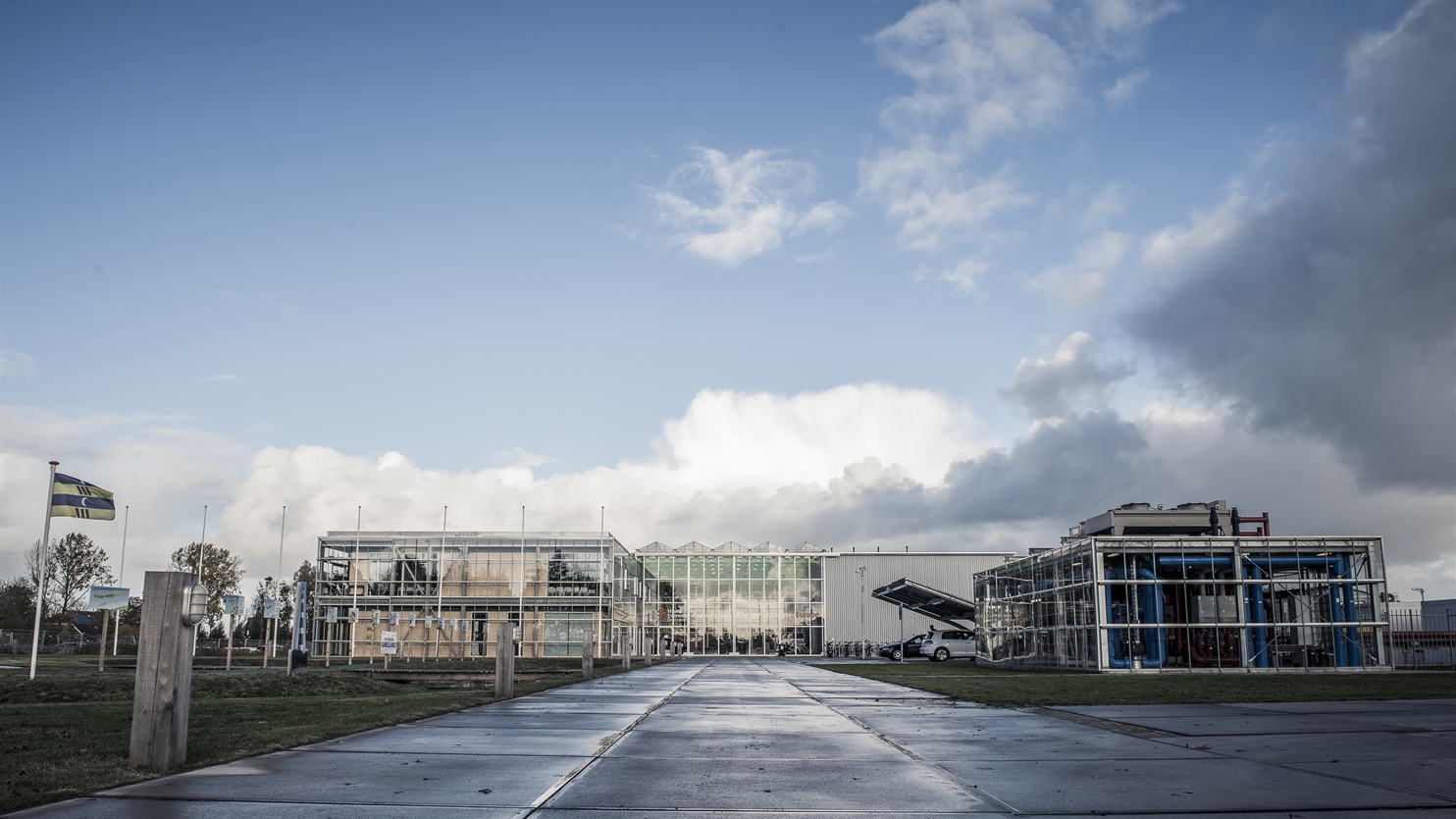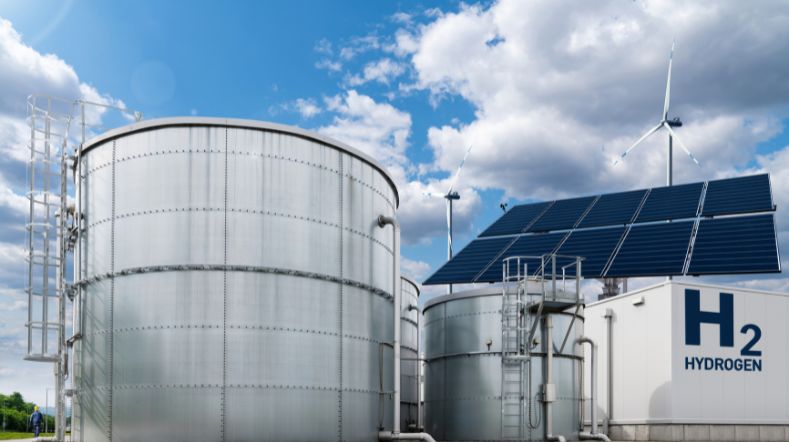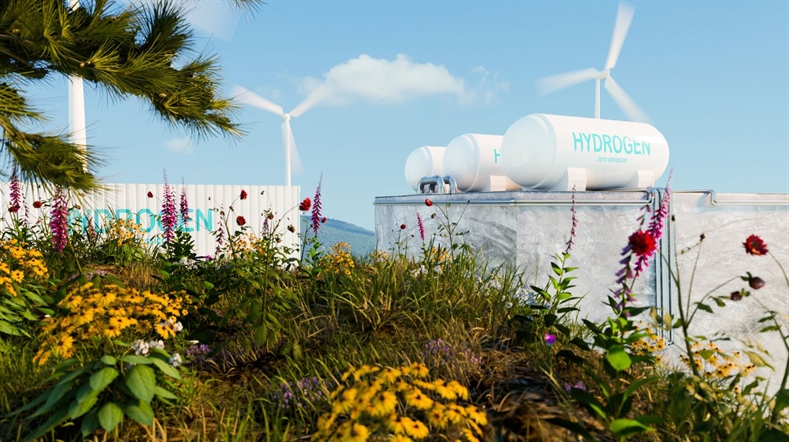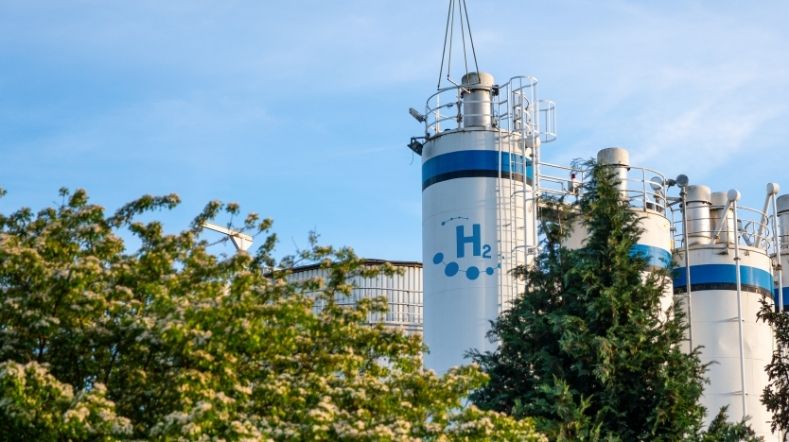Hydrohub MegaWatt Test Centre
In a new centre located in the Energy Transition Centre (EnTranCe) of Hanze University of Applied Sciences, Groningen – the so-called Hydrohub – TNO will investigate the large-scale, sustainable production of hydrogen through water electrolysis.
The Hydrohub is an initiative of the Institute for Sustainable Process Technology (ISPT), in which 13 organisations work together, including TNO (see the image below). These organisations have clustered their strengths to enable the large-scale, CO2-free production of hydrogen to take place cost-effectively in the Netherlands by 2030. This is an important step towards achieving the climate objectives.

It involves an open research centre, where (in addition to the partners of the consortium) other knowledge institutes and companies can research and test innovations from their own labs using electrolysis installations with a capacity of half a megawatt. Research on this scale makes it clear if new problems will arise and how the technology will behave when scaled up. According to the initiators, once the electrolysis technology in the Hydrohub is working well, it can quickly be transformed into an electrolysis plant on an industrial gigawatt scale.
Green hydrogen production
In the Netherlands, industry produces around 800,000 tonnes of hydrogen annually for use in its own production processes. This is currently achieved by converting natural gas into hydrogen and CO2 at high temperatures. By switching to the electrical production of hydrogen, industry is killing two birds with one stone: CO2 emissions and the use of natural gas are both being reduced drastically. This requires electrolysis plants that can convert water into hydrogen and oxygen cheaply and efficiently on a large scale through the help of sustainably-generated electricity.
Low temperature water electrolysis
TNO and partners are researching the development of Alkaline and Proton Exchange Membrane (PEM) electrolysis technology. These are the two technologies that are currently available commercially, but both still need to be significantly reduced in terms of cost in order to be applied on a large scale.
Stacks of electrolysis cells are installed in both types. For the stacks installed in the Hydrohub, it’s important that the size of the cells is representative of the size of the current commercial systems. Through an understanding of the scalability of the electrolysis process, it will soon be possible to apply the results obtained with smaller cells in the lab to the performance of large systems. This is an important step in accelerating the implementation of innovations from the lab in commercial systems.
Upscaling is necessary
The currently-available electrolysis plants, with a capacity of several megawatts, are far too small to supply industry with hydrogen. In order to switch completely to sustainable hydrogen, industry needs electrolysis plants with a total capacity of many gigawatts (1 gigawatt = 1000 megawatt). These plants must be relatively cheaper to procure and much smarter than the current small plants. In addition, they must be reliable and low-maintenance.
More knowledge is available
In the electrochemical laboratory in Petten, called the ‘Faraday lab’, TNO is working (among other things) on the development of hydrogen production with the aid of PEM electrolysis. How can we use cheaper and readily available materials while at the same time increase the lifespan and efficiency of the electrolysis process? The development is being carried out alongside Dutch suppliers of membranes and coatings, for example. It involves, for instance, using endurance tests to investigate innovative materials on a small scale, but also looks at how the manufacturing processes for electrolysers can be improved and scaled up.
Together, these aspects lead to improvements in the design of the electrolyser, which ultimately have to be applied on a representative scale. The combination of the Faraday laboratory and the Hydrohub research centre serves to ensure that more knowledge and experience will become available regarding the development and implementation of hydrogen production through water electrolysis. TNO leads the research in the field of PEM electrolysis within the Hydrohub and also provides the facilities of the Faraday lab.
CO2-free production throughout the chain
The development of affordable hydrogen production technology forms an essential step in the industrial transition to sustainable circular production, in which fossil raw materials and energy carriers make way for sustainably-produced raw materials and energy carriers.
From the optimisation of hydrogen production in the Faraday lab to the use of hydrogen in mobility and its application in the chemical industry within the VoltaChem programme, TNO is active across the entire hydrogen chain. The upscaling activities in the Hydrohub are an important link in the chain between materials research and application.
Projects
The production of hydrogen from renewable energy sources requires a dynamic operation of electrolysers. Process control plays an important role in this. Besides the construction of the Hydrohub MegaWatt Test Centre TKI Energy & Industry recently commissioned a first project.
The Hydrohub partners, including TNO, model and investigate the impact of the variable operation of the electrolyser on performance and the electricity grid. In this project TNO develops the control model. The aim is improving the overall operational efficiency of electrolysis for green hydrogen production.
Get inspired
World Hydrogen Summit 2025
Hydrogen in the energy system: The future of sustainable energy in the Netherlands and Europe


NORCE and TNO are entering into a strategic partnership on hydrogen developments


Dutch consortium participates in EU research project on large-scale hydrogen storage in depleted gas fields


Underground hydrogen storage


